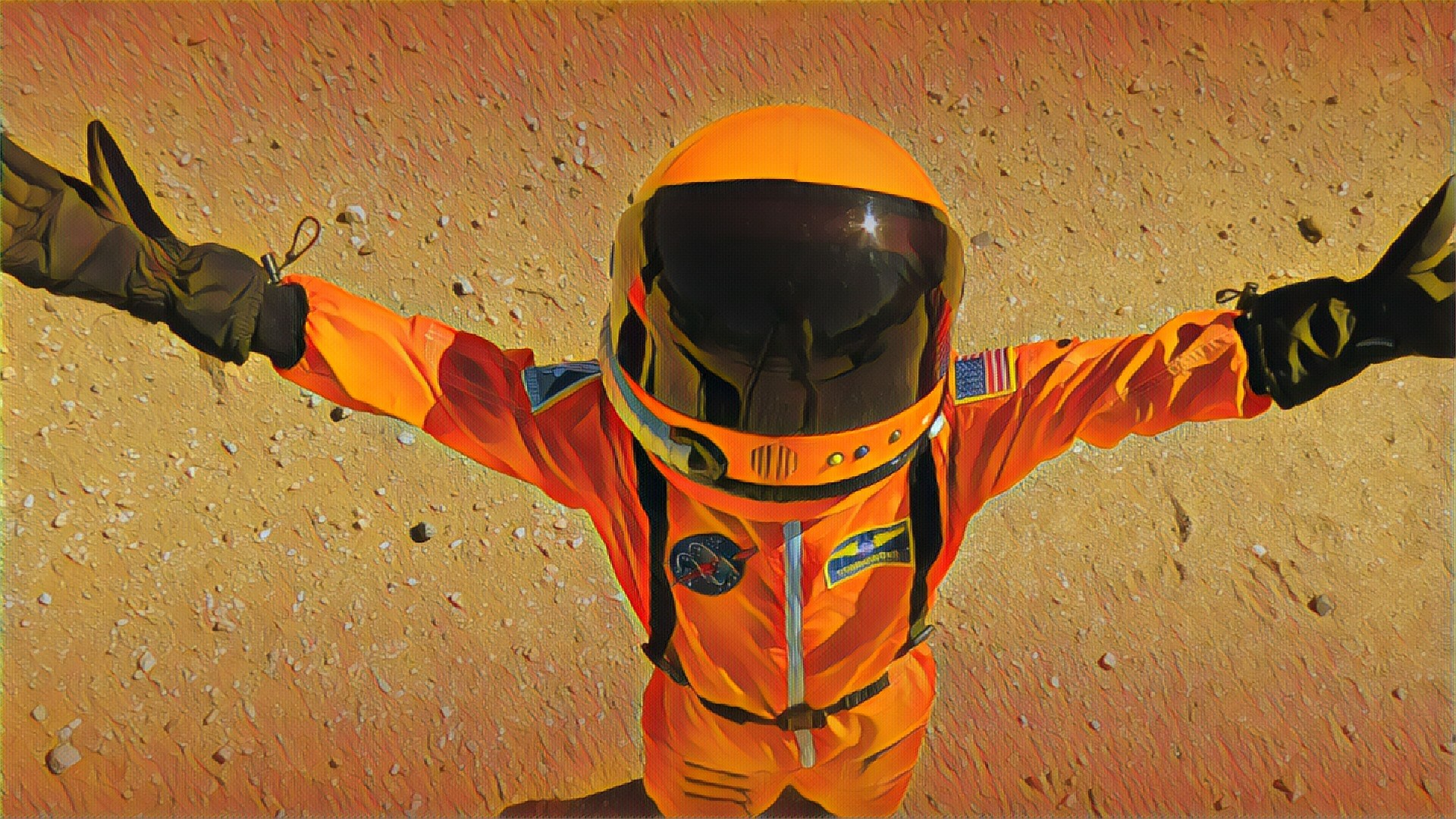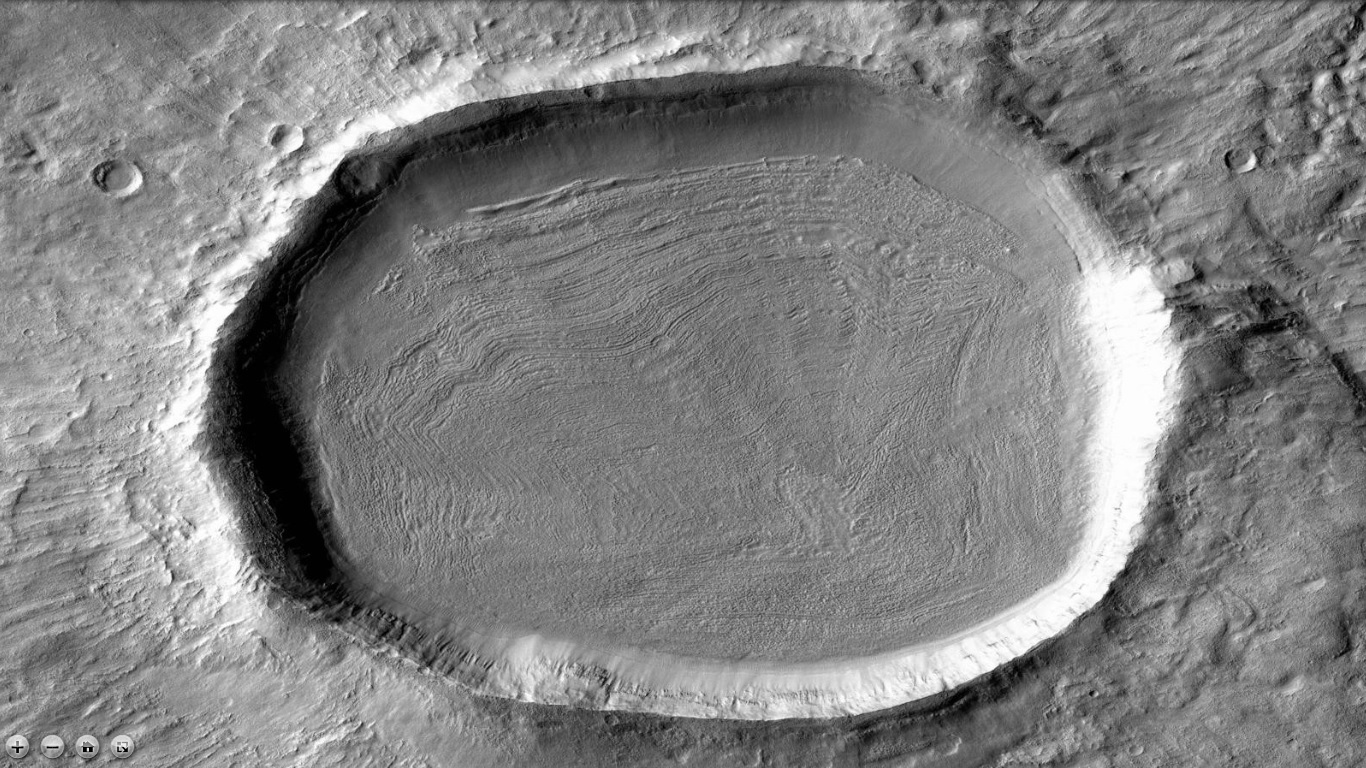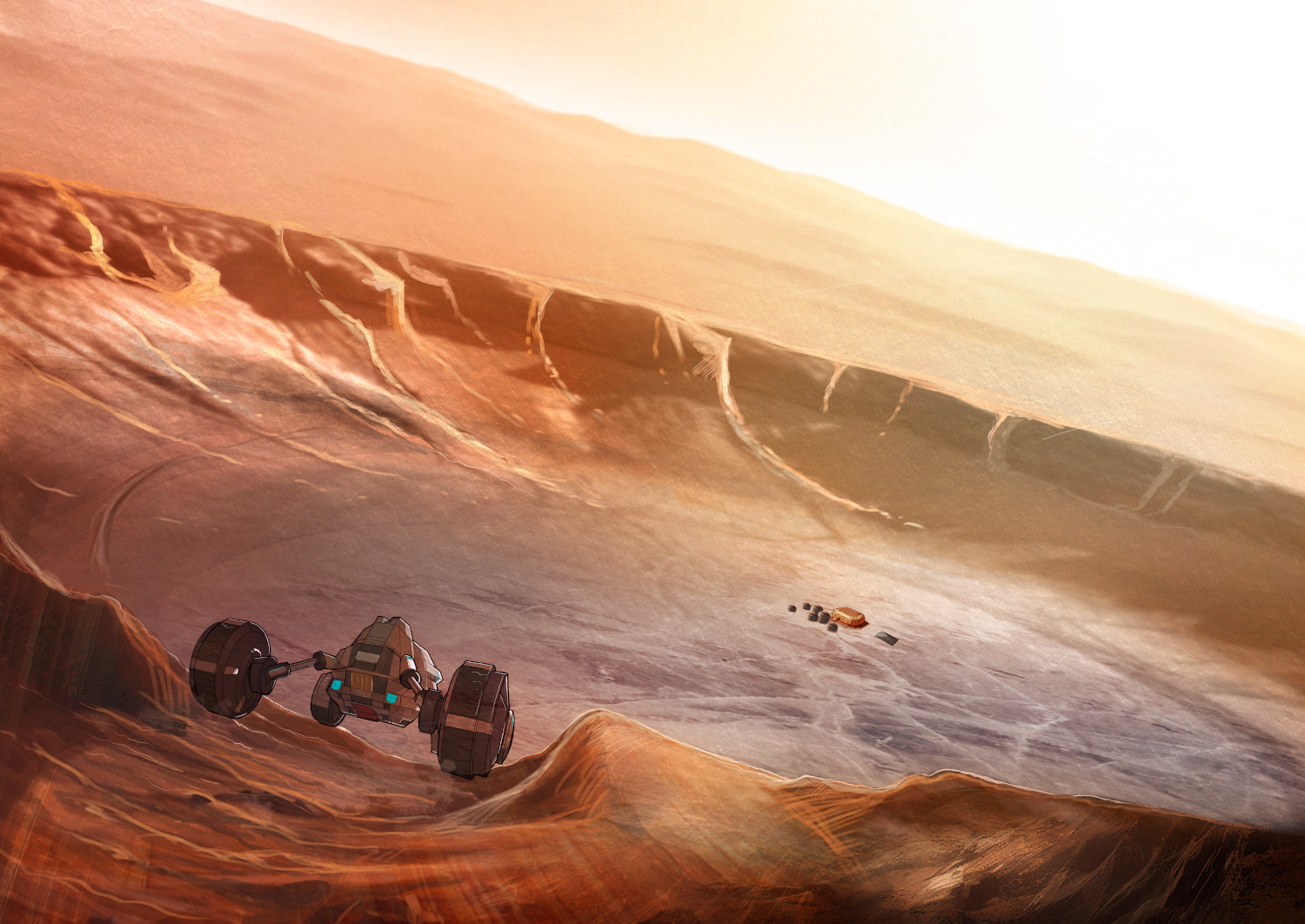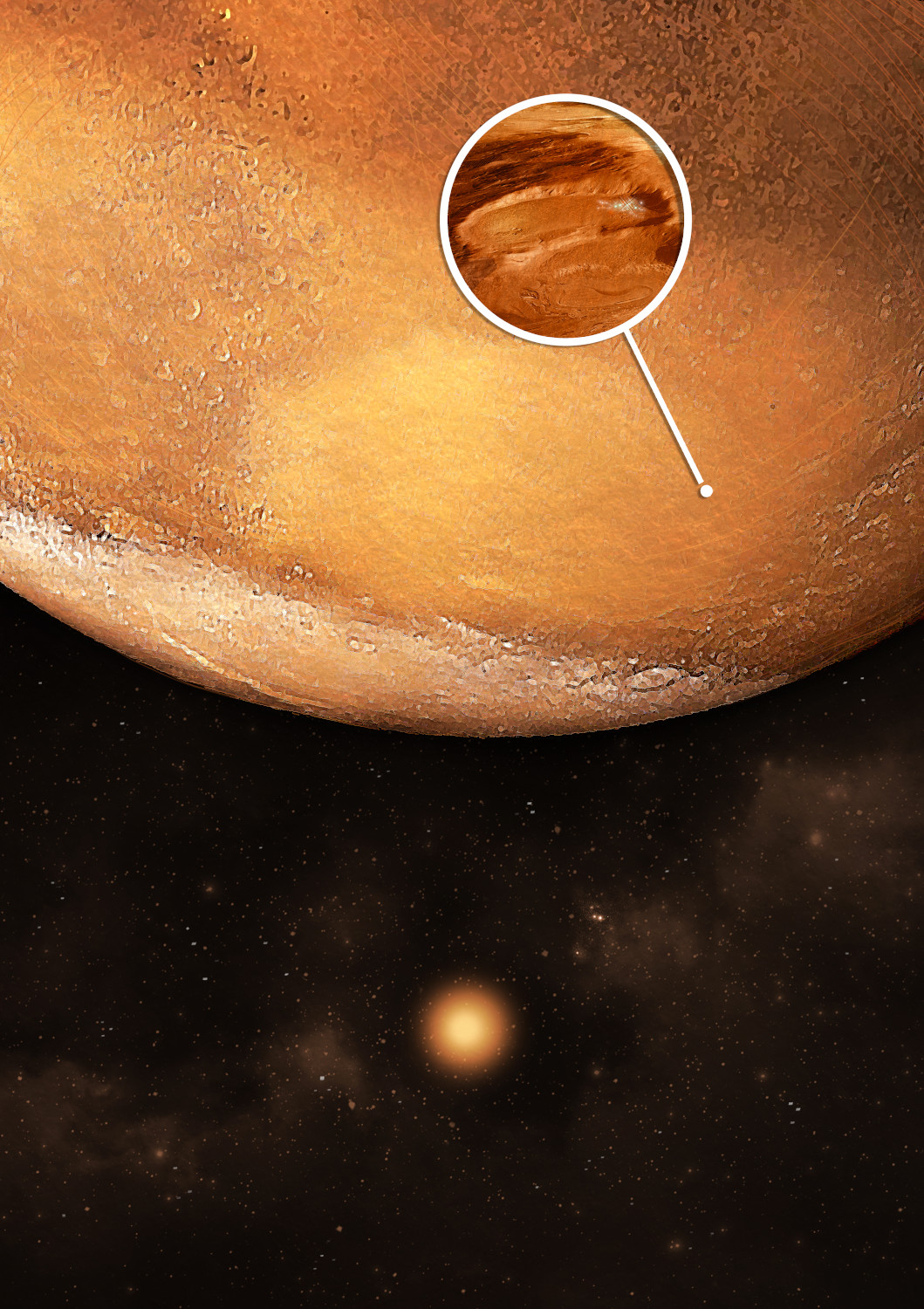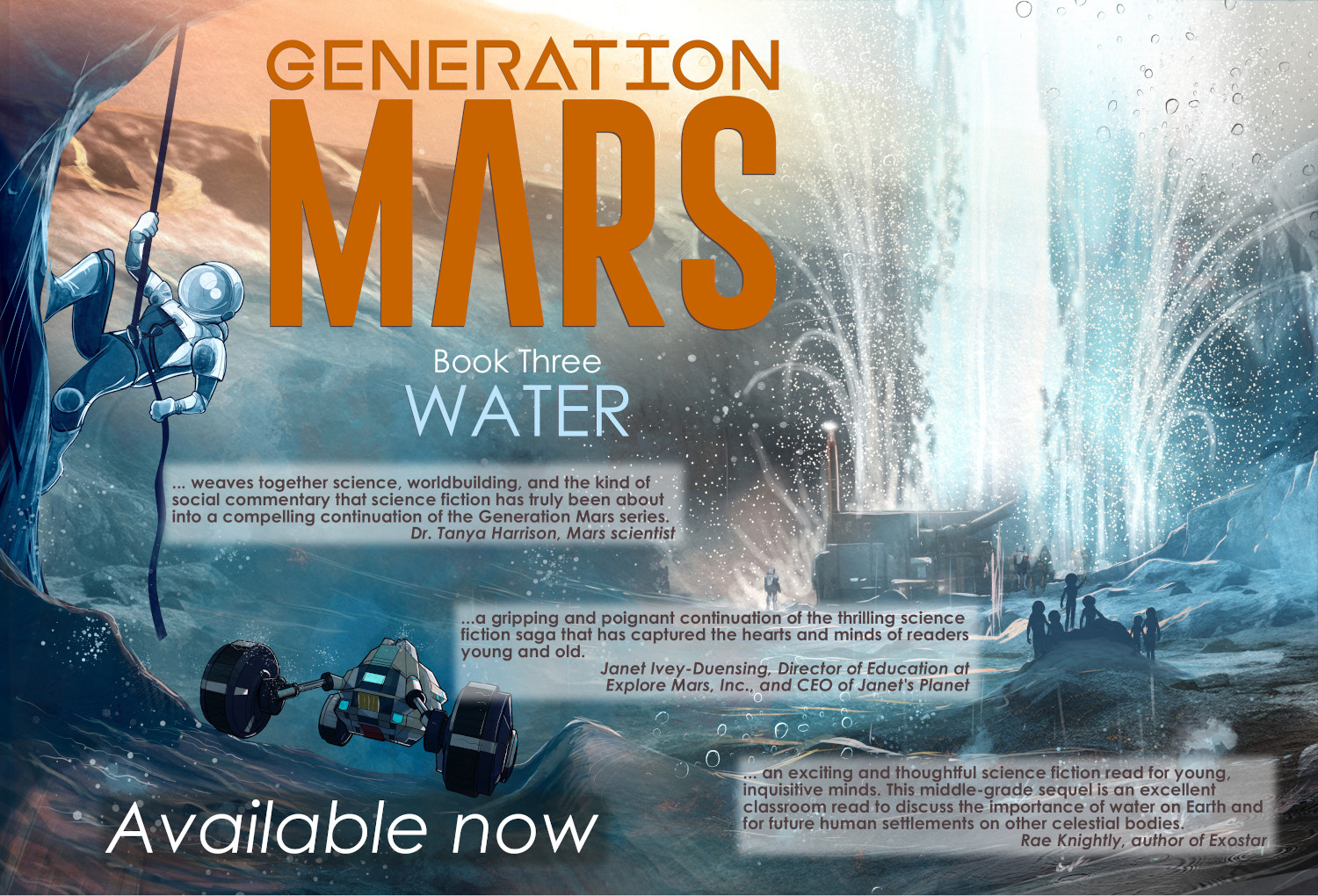After a few minutes of questions and answers, Nour started the rover and resumed the descent. Several minutes later the big rover drove out onto the ice sheet. Here, perhaps owing to the protection of the crater rim, the road was more distinct. The ice, which did not look like ice, was not flat. There were ridges and contours that mimicked the shape of the crater. These were called concentric crater fill and were caused by the slow movement of the ice as it had receded and grown, receded and grown through the millions of years it had existed in this crater. The road wound its way through these ridges until it reached the cluster of buildings and tanks and that gaping hole.
From Water: Generation Mars, Book Three. Available now at https://www.amazon.com/Water-Generation-Mars-Book-Three/dp/1733731067
Image: NASA
